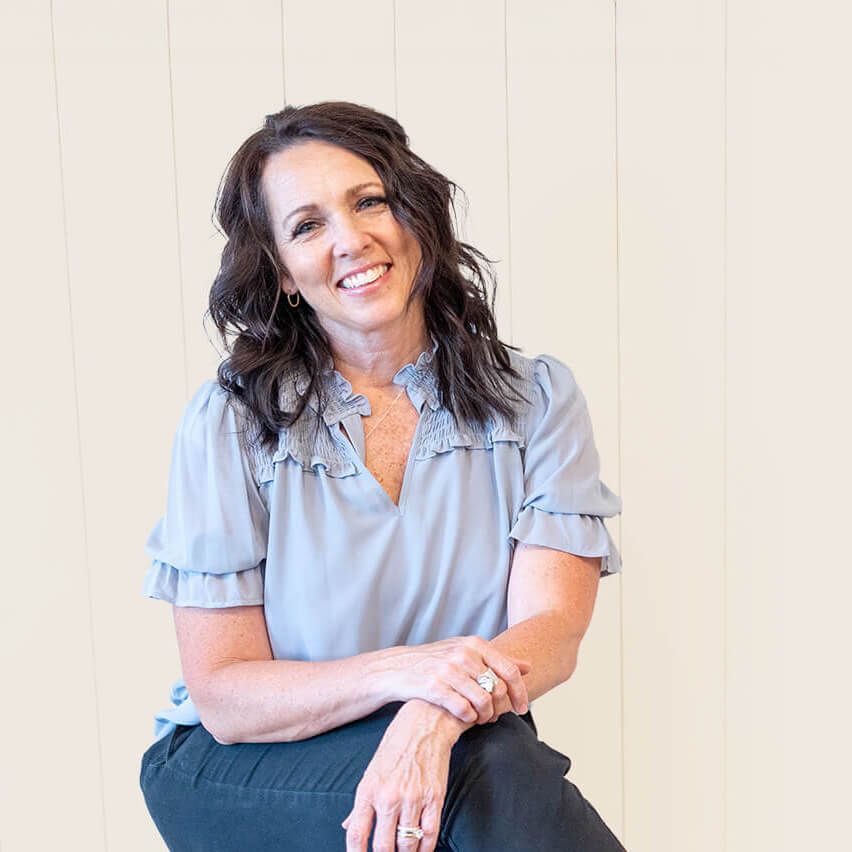Teenage Boys and Big Emotions: A Conversation with Molly Claire
Apr 21, 2025
What do I do when my son shuts down… or blows up?
How do I stay calm when I’m scared I’m losing him?
Can I really help him become a confident, emotionally healthy man without losing myself in the process?
These are questions every mom raising a teenage son asks herself at some point.
In this episode of Raising Boys, Building Men, I sat down with my own coach, mentor, and dear friend Molly Claire, master life coach and founder of Holistic Master Coach Training, to talk about the one thing that touches every one of us: emotions.
If you’ve ever wondered how to help your son handle his emotions and how to handle your own in the process, this is for you.
Start with Your Own Emotional Temperature
One of the first things Molly shared was a game-changing shift in perspective:
“Instead of trying to take your son’s emotional temperature every day, ask: What’s mine?”
If you wake up each morning anxious about how your son is doing, bracing for conflict, or trying to decode his mood—pause.
Start with you.
-
Am I grounded today?
-
What emotions am I bringing into the room?
-
What do I need to regulate myself first?
Why? Because the calmer and more regulated you are, the more access you’ll have to your prefrontal cortex the part of your brain that helps you parent with wisdom, patience, and clarity.
And bonus: your calm energy is contagious.
Connection Starts with Regulation
When you focus on regulating yourself, two powerful things happen:
-
You show up as the calm, confident, capable mom your son needs.
-
You model emotional health in real time.
We don’t teach emotional intelligence by lecturing. We teach it by living it.
That means checking in with yourself daily, making space for your emotions, and taking responsibility for your nervous system so you can respond to your son, not react.
Meet Him Where He Is, Literally and Emotionally
Sometimes the most powerful thing you can do is physically go to him, not to change him, but to be with him.
-
Sit next to him while he plays Xbox.
-
Pop some popcorn and hang out in his room.
-
Drive in silence without forcing conversation.
And emotionally? Stop pushing for where you want him to be.
Instead, meet him right where he is.
This is what creates safety and safety is the foundation of connection.
A Simple Question That Builds Emotional Intelligence
“What would be most helpful right now?”
This one question—genuine, gentle, non-invasive—can transform your connection.
It does two things:
-
Helps your son check in with himself
-
Teaches him to name and express his needs
If he says “nothing,” let that be okay. That in itself teaches him self-awareness and self-trust.
And the magic? You’re teaching him to become a man who understands and communicates his needs—a rare and powerful trait.
Another Favorite: “How Do You Know I Love You?”
This question reveals his love language, not yours.
You might think your love is shown through meals and rides and favors. But he might feel it through:
-
Friday soda runs
-
Sitting beside him in silence
-
You laughing at his dumb meme
When you know what lands for him, you can be more intentional and less exhausted. You’re not trying to do it all—you’re doing what matters most.
Modeling, Not Meddling
Here’s a truth bomb from Molly:
“The more you model emotional maturity, the less you need to meddle.”
Yes, teach and guide but resist the urge to “coach” your son every time he’s upset. Most of the time, what he really needs is for you to just be there.
Try this:
-
Ask: “What do you need?”
-
Let silence be okay.
-
Don’t rush in to fix.
Your steady presence is doing more than you realize.
When Anger Shows Up
Teenage boys often express big emotions through anger. It’s the most socially acceptable emotion for them to show. But here’s the important distinction:
-
Anger isn’t bad.
-
Disrespectful behavior is.
You can validate the emotion and hold the boundary:
“It’s okay to feel angry. It’s not okay to yell at me.”
This is how we teach them respect—for themselves, for us, and for future partners. Think of it like putting up emotional bumper pads guiding the expression without suppressing the feeling.
When You Parent from Fear
Let’s be honest: Fear is driving more of our parenting than we want to admit.
-
He’s struggling socially… what if he never makes friends?
-
He’s behind in school… what if he never catches up?
-
He’s always on screens… what if he lives in my basement forever?
Here’s the problem: Fear leads to control.
And control leads to disconnection.
But here's the truth we often forget:
Your son is going to mess up. And that’s okay.
It’s part of the plan.
Instead of fearing it, expect it. And trust yourself to walk with him through it without needing to fix or control every outcome.
Guilt: What You Should and Shouldn’t Carry
We all feel it. But not all guilt is created equal.
✅ Useful Guilt
Comes from true missteps. Leads to repair. Healthy and necessary.
❌ Useless Guilt
Comes from impossible standards. Keeps you stuck. Exhausting and ineffective.
Drop the guilt that comes from doing it “wrong.” You are a human mother raising a human son. You’re going to mess up. And that’s not just okay, it’s normal.
A Grounding Practice for Overwhelmed Moms
When the fear or guilt hits, try this:
-
Step away. Go into another room.
-
Breathe. Name what you’re feeling: “This is fear.”
-
Remind yourself: “It’s okay to feel afraid.”
-
Return grounded. Reconnect without reacting.
You don’t have to be perfect. You just have to be present.
Final Thought: You Are the Safe Place
Here’s the most important thing to remember:
Your son will likely lash out at you the most because he feels the safest with you.
That doesn’t mean you’re doing it wrong. It means you’re doing something right.
Hold the boundary.
Stay steady.
Keep showing up.
You are not losing him.
You are leading him.
And the work you’re doing showing up, regulating yourself, connecting with him, asking gentle questions, staying calm, is what builds lifelong connection.
You’re not just raising a boy.
You’re building a man.
About Molly Claire:
Molly Claire is the Founder of The Masterful Coach Collective where she trains and mentors Master-level coaches in the 4 Fundamentals of Lasting Change. She is an advocate of leading your coaching business with results for your clients and letting the rave reviews become your best marketing strategy. Molly has a private mentorship for 6-7 figure entrepreneurs by application only. Molly is a 7-figure business builder, proud mom of 3, top 3% podcaster, and best-selling author of The Happy Mom Mindset.
Find more at Mollyclaire.com
Ready to Go Deeper?
Want a step-by-step way to build that emotional connection with your son?
👉 Download “5 Things Your Teenage Son Desperately Wants You to Know”
It’s completely free and packed with real insight to help you shift from disconnected and confused… to calm, confident, and connected.
You’ll also get weekly parenting tips straight to your inbox. Think of it as your emotional compass for the week.
Want more conversations like this?
Join our private Facebook community for moms raising teenage boys. We talk about real-life challenges, share strategies, and lift each other up—because you don’t have to do this alone.
👉 Join “Raising Boys, Building Men” on Facebook
Additional Support:
Visit our website Raisingboysbuildingmen.com HERE
Schedule a FREE Relationship Reconnection Call with Me HERE
Follow us on Instagram HERE
Grab 8 tips to connect with your son today HERE
Related Episodes You Might Like:
Managing Anxiety: Tools and Strategies with Dr. Robin Graham
Your Parenting Why: The Secret That Separates Struggling Moms from Thriving Ones









